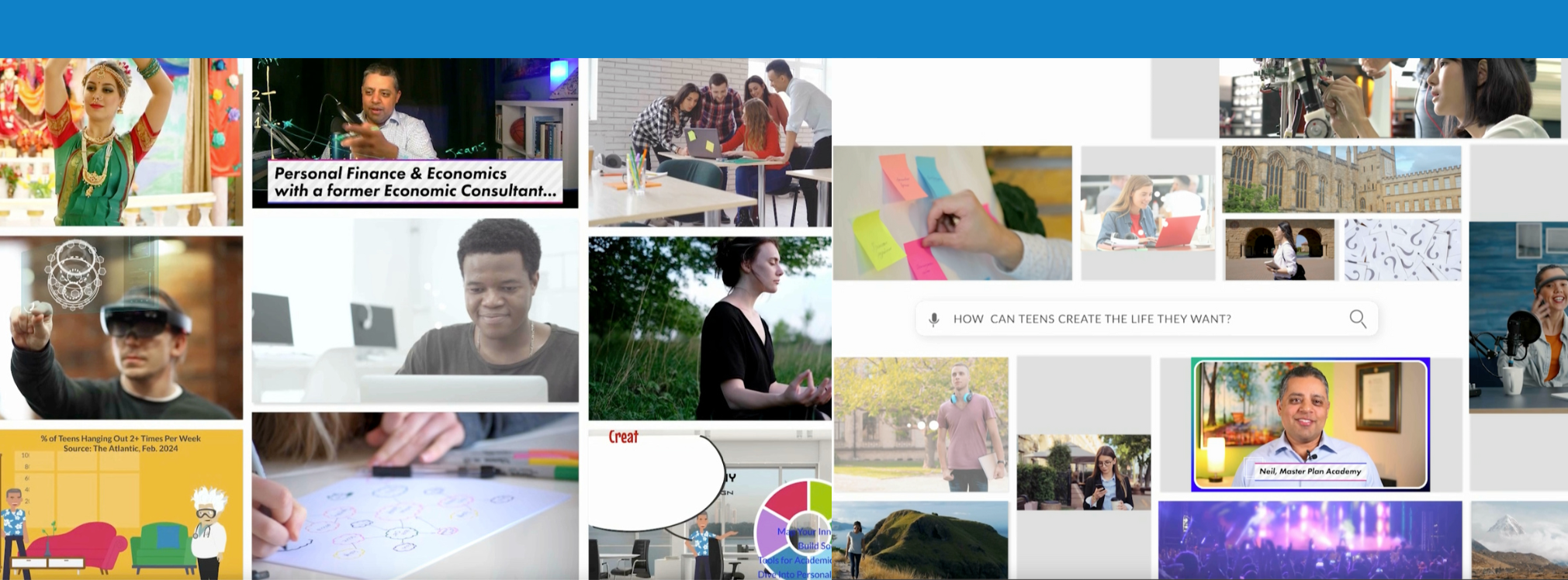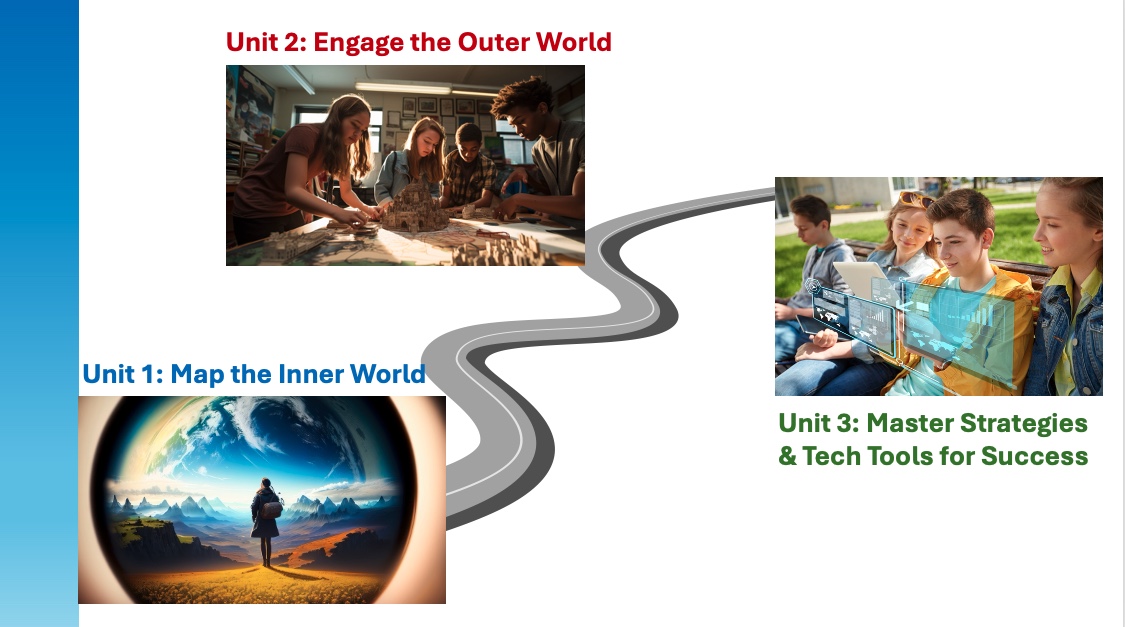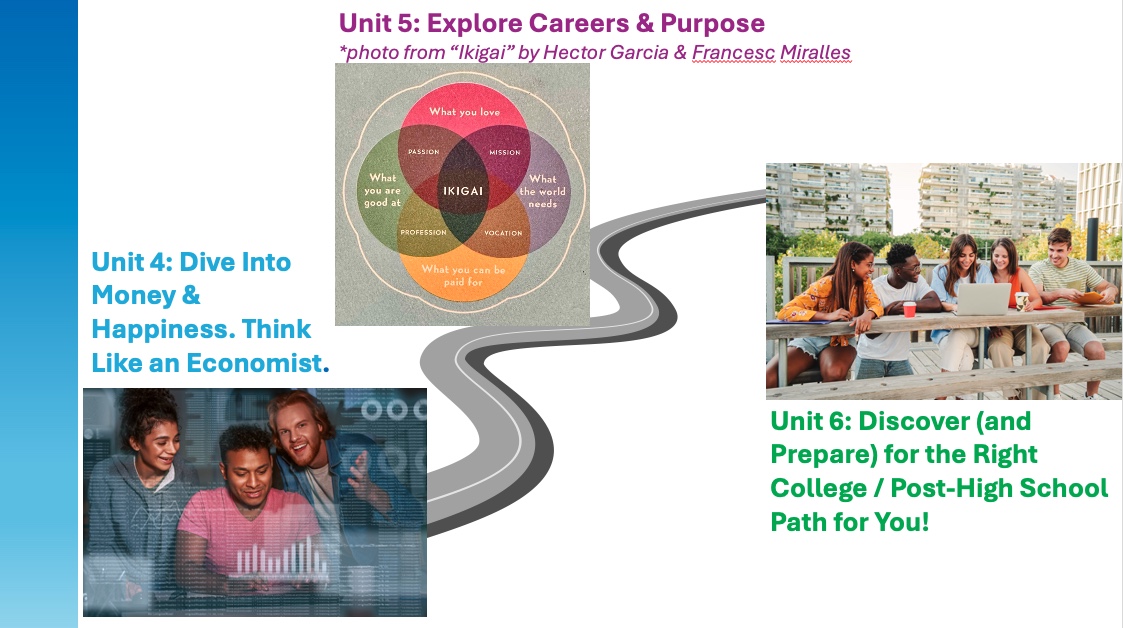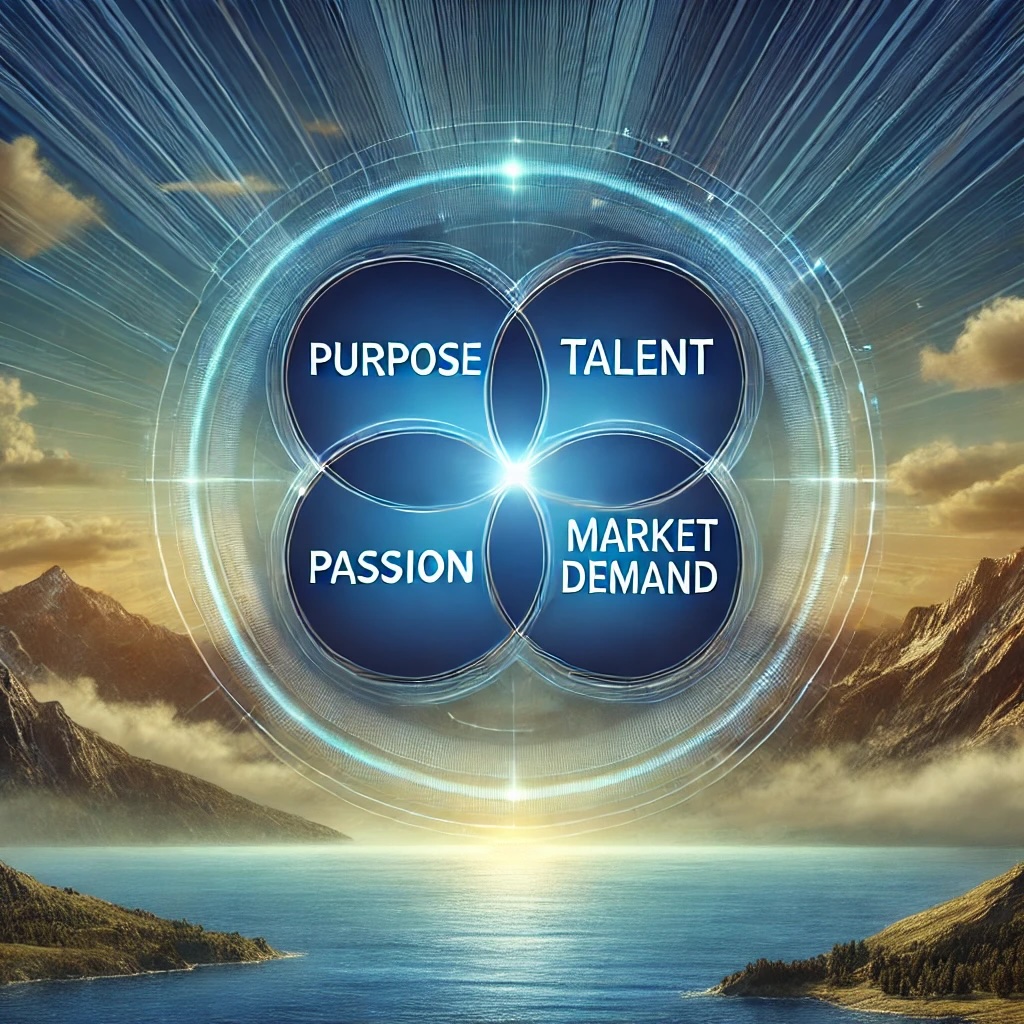
We would love to be your partner in guiding your teen to college admissions and life success! Here's how you get started:
1. Explore Our Programs Below.
Choose the one that best fits your teen’s age/stage.
2. Book Your Free 30-Minute Consultation & Initial Assessment.
Learn more about our programs. Share your teen’s interests and goals.
3. Enroll and Begin Your Journey.
Parents are welcome to join 1:1 meetings in both of our programs!
Designing College: Program Overview for Our 1:1 College Admissions Coaching Program (11th & 12th Graders)

An Exceptional Value: Develop Your Admissions Vision & Plan, Achieve Results Efficiently, Reduce Stress with Expert Coaching
- New sessions are planned for late summer 2025. This comprehensive 6-week program guides you efficiently through everything you need for admissions success.
- Enjoy Convenient Weekly 60 minute sessions via Zoom (6 session package). Additional sessions can be added as needed. Get a Harvard & UC Berkeley graduate as your guide.
- Access our coaching tools and strategies on our course portal to pick up powerful design skills for clarifying your values and goals, managing your time and stress, and navigating interviews!
Initial Assessment
At the outset, your expert coach will guide you to
Uncover your vision and craft SMART goals for the application process
Develop a personalized admissions timeline
Understand the admissions process for schools of interest
Evaluate your academic background, courses, standardized tests
Identify core values, unique strengths, and a winning narrative for apps
Strategy Development, Essay & Profile Creation
As the program continues, you will work with your coach to
Review story-telling frameworks. Build a compelling narrative that fits your values
Brainstorm essays. Outline, draft, edit & refine with coach
Strategically plan your schools and recommendation letters. Practice how to approach recommenders
Use Master Plan Academy’s coaching tools to explore purpose, discover potential majors/careers, and master time & stress
Build your growth mindset and test-taking approach. Use strategies to optimize your academics, extracurriculars & summer time
Bringing It Home
Later in your program, you will
Use our tools to build your social skills and practice interviews for schools, scholarships or summer jobs
Polish your essays and receive support in adapting them to different prompts
Build your selection process/criteria for choosing the right school
Receive our guide to 1st year college success
Develop a personal vision & plan for college
Contact Us & Get Started With Your College Admissions Journey!
Designing High School: Program Overview for Our Group-Based, College Prep & Life Design Program (8th – 10th Graders*)
*Note: If there is sufficient enrollment, we will consider opening a separate section for 10th graders.

An Incredible Journey & Value: Achieve Deeper High School Success, Develop Powerful Social, Finance & Tech Skills, Build Your College & Career Vision & Plan
- Spring 2025 session begins week of March 10, 2025. This comprehensive 12-week, hybrid online program helps guide you efficiently through everything you need to create an amazing high school experience and achieve college admissions success.
- Access a comprehensive and engaging curriculum to pick up powerful design-thinking skills, master goal-setting, manage your time and stress, and understand personal finance years early!
- Build your college and career vision. Plan more effectively and strategically. Reduce the stress of Junior/Senior year.
- Leap years ahead in your personal growth, success strategies for high school and beyond, and life skills (social skills & influence, personal finance, and more). Benefit from 12 weekly modules of content in our online learning portal that you complete on your own time.
- Grow and hone your skills in weekly, 60 minute online group classes (12 sessions), 45 minute small group (4:1 ratio) coaching sessions (2 sessions included), and 30 minute online 1:1 coaching sessions (2 sessions included and parents welcome to join).

Step 1: Map the Inner World
Learn the ropes of Design Thinking for your life. Build a dashboard to gauge your satisfaction
Identify your beliefs and values.
Learn powerful frameworks to understand your own Journey, and your mind.
Use exercises designed to help you explore your Talents,Flow, and purpose.
Step 2: Engage the Outer World
Learn a powerful way to manage Time and Stress in High School and beyond.
Learn how First Impressions work and practice the art of talking easily with anyone. Understand your personality!
Master tools to “Read” people and handle Teamwork conflicts at school
Learn how to build better Relationships.
Step 3: Master Strategies & Tech Tools for Success
Use Design Thinking practices to create new ideas and build a Vision for your life (e.g. extracurriculars, careers)
Learn faster and better using AI, online learning, and Memory & Learning techniques.
Use Tech and advanced techniques to master Time, meet Deadlines, and beat Procrastination.
Create what you want by Goal-Setting, tracking progress, and planning/visualizing.

Step 4: Master Personal Finance Basics. Discover Happiness Research and Think Like an Economist
Go years ahead and master how Money and the Economy work.
Discover how to grow your money through investment.
Learn what the Experts have to say about Happiness and how to make great choices for your life.
Step 5: Explore Careers & Purpose
Use a powerful Career assessment to start uncovering your interests.
Tap into Happiness research and other expert guidance on finding your Passion.
Research interesting careers and learn how to create and deliver an effective presentation.
Develop your own Ikigai Map representing the overlap of Interest/Passion, Market Demand, and Talent/Skill.
Step 6: Research College / Post-High School Pathways, Develop Your Vision, Plan & College Admissions Strategy
Understand the Return on Investment for different majors. Explore pros/cons on big questions like Liberal Arts vs. Technical and Generalist vs. Specialist.
Learn how College Admissions works. Start finding the right colleges for you.
Led by a Harvard and Berkeley graduate, learn the art of Selective College Admissions. Discover the key dimensions to build your Profile.
Build your College / Post-High School Vision & Plan, with 1:1 Coaching and Guidance.
What’s At Stake?
Imagine facing life’s toughest challenges with confidence—or feeling stuck, overwhelmed, and lost.
The path you choose today can make all the difference. By joining our program, you’re choosing to take charge, gain critical skills, and make your dreams a reality.
What Skills Will You Learn?
Designing High School is packed with discoveries to transform your high school experience and your life.
See the panels below for examples of what you will gain from the course.

Skills & Outputs to Expect from Designing High School
Explore the A) Tech Skills, B) Strategies for Personal Growth and Success, and C) Tangible Outputs you’ll get below.

Step 1: Map the Inner World
1. Tech Skills: Students develop Google Sheet dashboards to gauge their satisfaction across key life dimensions. They begin to use Generative AI . .
to create compelling artwork. They use design software to make a personalized Coat of Arms.
2. Strategies for Personal Growth and School/Life Success: Students begin to develop an understanding of Mindful Awareness, its numerous benefits (academic, social, emotional, physical), and its basic tools. Students explore the concept of EQ and assess their own Emotional Intelligence so they can grow it over time. They do exercises to uncover their sources of Flow, which helps them discover potential extracurriculars and begins to suggest rewarding career paths.
3. Tangible Outputs: Students create a personalized life satisfaction dashboard and an inspiring Coat of Arms to visually represent their talents and goals. They write a World Lens to capture their beliefs about school, work, and life. They apply journey frameworks to analyze their own life journey so far and visually represent their journeys. Students obtain the results of an Emotional Intelligence assessment.

Step 2: Engage the Outer World
1. Tech Skills: Students use Google Calendar to practice basic time management and meet deadlines. They use process-mapping software . .
to visualize a social network. They practice using digital notes to boost their organization and retention.
2. Strategies for Personal Growth and School/Life Success: Students learn a comprehensive framework for managing stress and energy in high school. They practice additional Mindfulness techniques that help with stress and relationships. They learn core techniques for navigating teamwork situations at school, building relationships, expanding their networks, and raising social capital. Students practice techniques to talk with new people and make positive first impressions. They practice basic techniques for managing their time, and for strengthening their memory and voice.
3. Tangible Outputs: Students obtain the results of a personality assessment, to gain insights on themselves and their style of interaction. They receive an e-Guide and workbook to managing sleep and energy, which students will fill out to develop their strategy for managing their time and sleep. Regular use of Google Calendar and a digital notes system for their school courses.

Step 3: Master Strategies and Tech Tools for Success
1. Tech Skills: Students use process-mapping software to create a brainstorm. They learn to use digital flashcards . .
for test preparation and memorization. Students use spreadsheets to map out a plan for their current school semester.
2. Strategies for Personal Growth and School/Life Success: Students practice design-thinking exercises that help them to develop new ideas for extracurriculars, summer internships, and more. They learn methods to tap into their social networks and find new opportunities. Students discover how to leverage AI, online learning resources, and techniques for faster learning and test preparation to excel in school
3. Tangible Outputs: Students will create a plan for their current school year which includes academic, extracurricular, and life goals that they select. They will include in the plan an assessment of their current status, a detailed description of the desired state, and goals and sub-goals that will help them move towards the vision. Students will also create a process map to help them visualize a path to one or more of their goals.

Step 4: Master Personal Finance Fundamentals. Discover Happiness Research and Think Like an Economist.
1. Tech Skills: Students learn to create simple but powerful financial calculations and models in spreadsheets.
2. Strategies for Personal Growth and School/Life Success: In the area of personal finance, students gain foundational mastery over life-changing concepts, including how banking works, simple and compound interest, assets and liabilities, and the concept and calculation of ROI. In the area of economics, students grasp illuminating ideas, including Supply & Demand, opportunity cost, and comparative advantage, and how these concepts can inform the selection of a career path.
3. Tangible Outputs: Students will create a detailed budget based on a selected, hypothetical life after college. The budget will reflect actual costs which they will research with the help of AI and online research.

Step 5: Explore Careers and Purpose
1. Tech Skills: Students will learn to use Generative AI . .
to create summaries of research questions on various careers. They will use design software to create an “Ikigai Map.”
2. Strategies for Personal Growth and School/Life Success: Students will more deeply explore the Japanese concept of Ikigai (life purpose) as well as the related practices and lifestyle that drive happiness and longevity amongst the Okinawans. They will do exercises recommended by renowned experts on finding your passion.
3. Tangible Outputs: Students will gain the results of a powerful career assessment. They will create and deliver a career presentation that summarizes their own research on top careers of interest. They will create a visual “Ikigai Map”, which represents the overlap of talent, passion, and market demand for a selected career.

Step 6: Research College / Post-High School Pathways, Develop Your Vision, Plan & College Admissions Strategy
1. Tech Skills: Students will use spreadsheets to develop ROI estimates . .
for selected college majors. They will utilize Generative AI to perform research on potential colleges and majors.
2. Strategies for Personal Growth and School/Life Success: Students will gain powerful insights on how to select a post-high school path, including targeting colleges and selecting potential majors, applying both financial criteria and a consideration of purpose and passion. They will gain not just a foundational knowledge of college admissions requirements, but guidance on the art of interviewing for and gaining admission to selective colleges.
3. Tangible Outputs: Students will build a comprehensive College and Career Vision & Plan. This plan will incorporate 2 to 3 prototypes or visions for a particular path that could fit him or her, based on previous exploration throughout the program. The plan will incorporate goals that your student has selected, in discussion with parents/guardians, such as purpose, passion, and financial goals (e.g. 50% or more outside funding for college).



